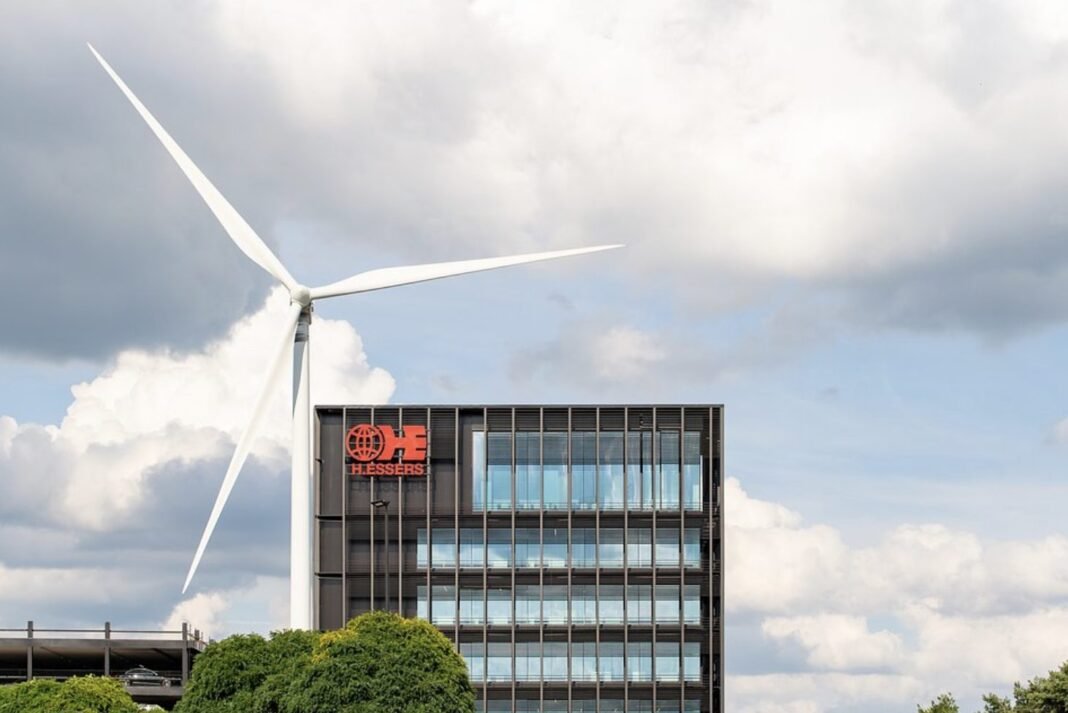Logistics service provider H.essers announces large -scale initiatives to considerably reduce his ecological footprint. During a meeting with customers and partners, CEO Gert Bervoets underlined the strategic importance of electrification, intermodal transport and a well -considered energy management on Wednesday to make the logistics network future -proof.
H.Assers reinforces its intermodal strategy by transporting even more freight over long distances via track and inland shipping. “For transport to, for example, the United Kingdom or even China, we will increasingly use the track,” says Gert Bervoets. With this, the group hopes to reduce the share of road transport, without compromising on efficiency.
At the same time, road transport remains an important link in the chain. That is why further investments are being made in the greening of the truck park. Despite the high cost of electric trucks – according to Gert Bervoets still three times more expensive than diesels – the company focuses on a zero mission fire where possible.
Smart energy management
An important asset in this sustainability ambition is the new energy ecosystem: the H.essers Synchro Grid. This energy management system combines infrastructure such as solar panels, wind turbines, battery storage, charging infrastructure and net balancing systems to an integrated solution for managing energy consumption and production.
Gert Bervoets benadrukt dat energiebeheer een strategische pijler vormt: “De elektrificatie van onze activiteiten is niet louter een technische uitdaging. Het is een structurele omslag die vraagt om slimme, flexibele oplossingen, waarbij we zo veel mogelijk laden als de energieprijs laag is en produceren als de prijs hoog is. Via proof-of-conceptprojecten in onze e-hub bereiden we ons voor op grootschalige uitrol op andere locaties in Europe. ”
CEO Gert Bervoets: “Over -regulation and strict European reporting requirements are not allowed to fnute innovation.”
Fast charging is expensive
To realize these plans, a large -scale study is currently being conducted into the adjustment of the infrastructure at all European locations. “Loading trucks is an example of how complex sustainability can be. Fast loading is expensive, slow loading takes time – both have an impact,” says Bervoets. H.essers is also looking for the balance between operational efficiency and sustainability in this area.
The company also invests in knowledge building and cooperation with academic institutions, energy partners and innovative startups. The Essers Family Office supports this course through participations in companies such as Extrapower, active in energy storage and management.
Realistic rules
Gert Bervoets calls on European policy makers to continue to defend the climate objectives, but also to ensure a realistic regulatory framework. “Decarbonization is essential for chain management in Europe, but the over regulation and strict reporting requirements are not allowed to fnute the innovation.”


